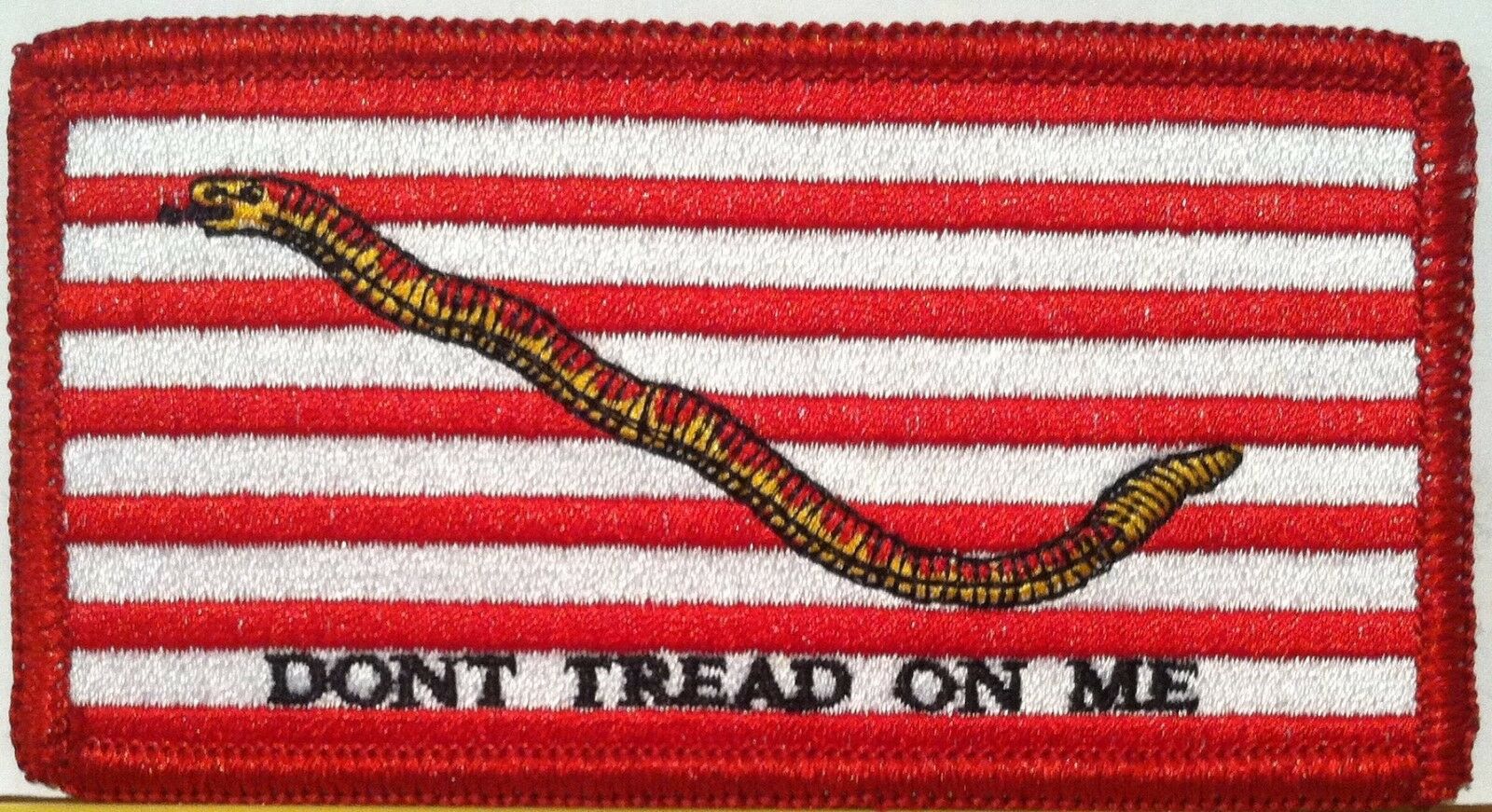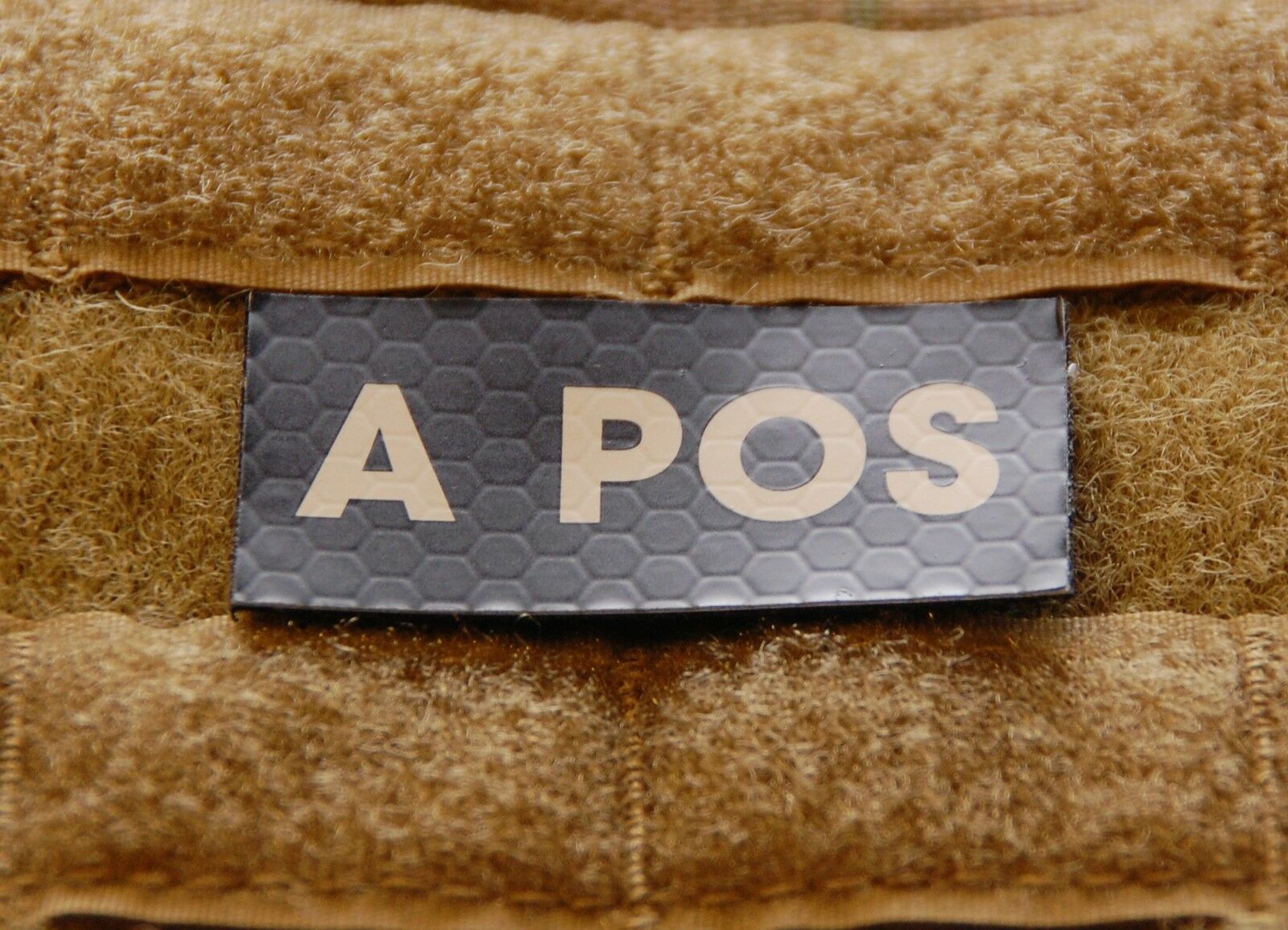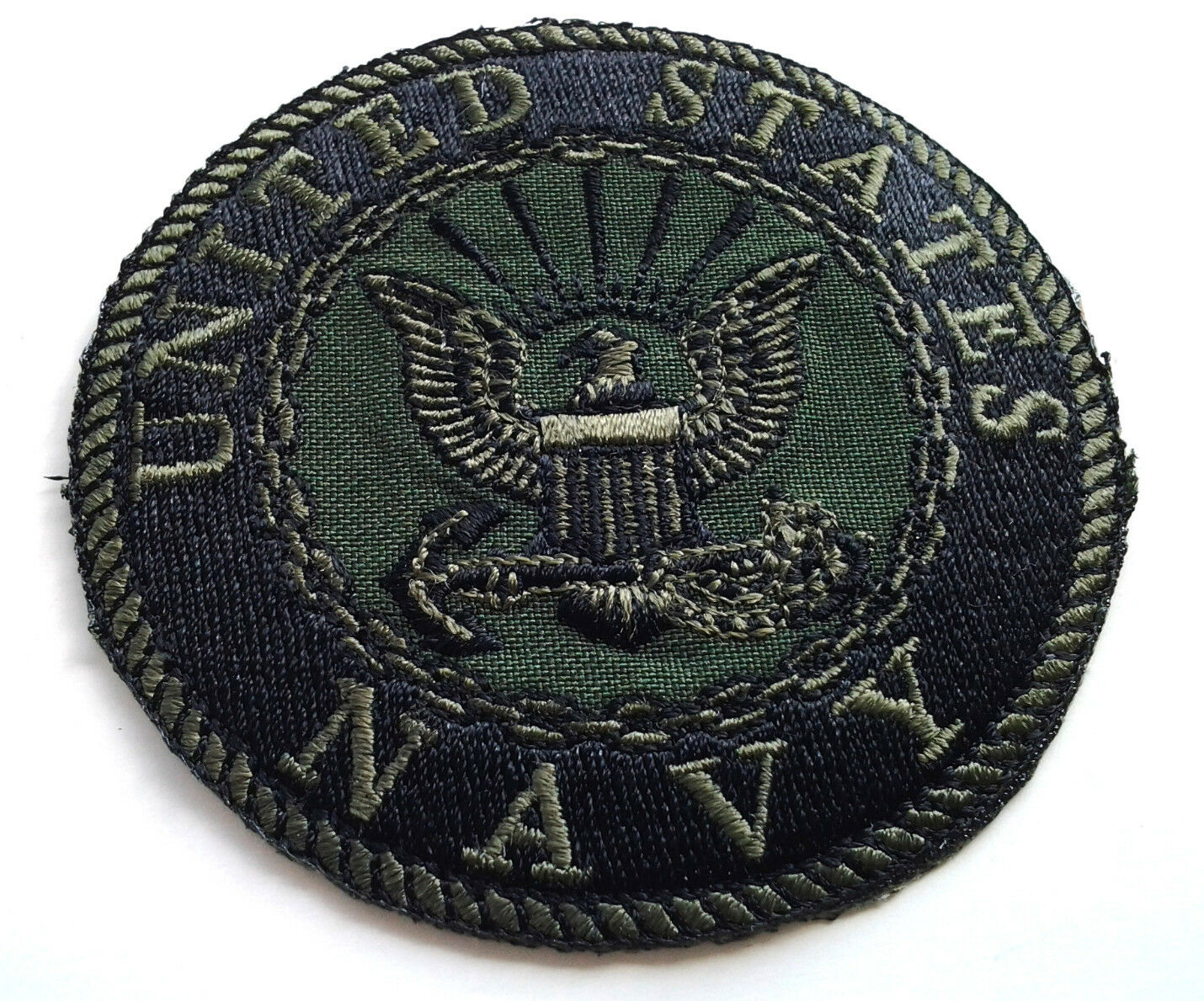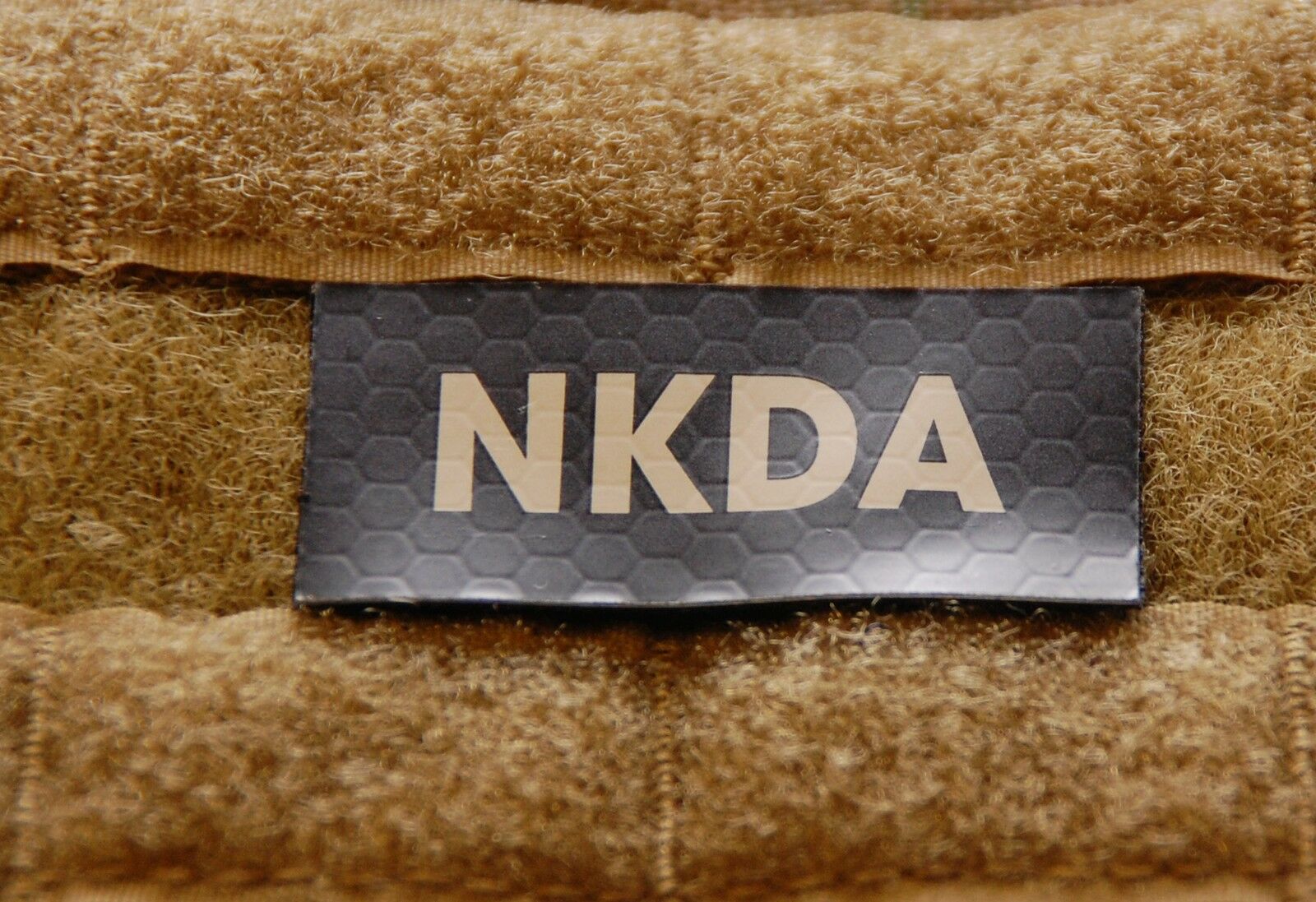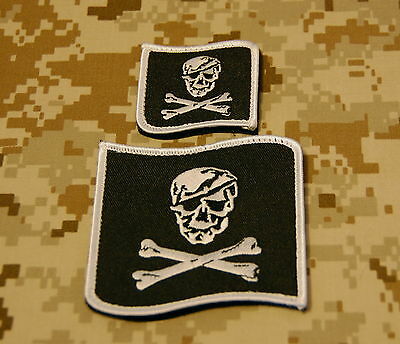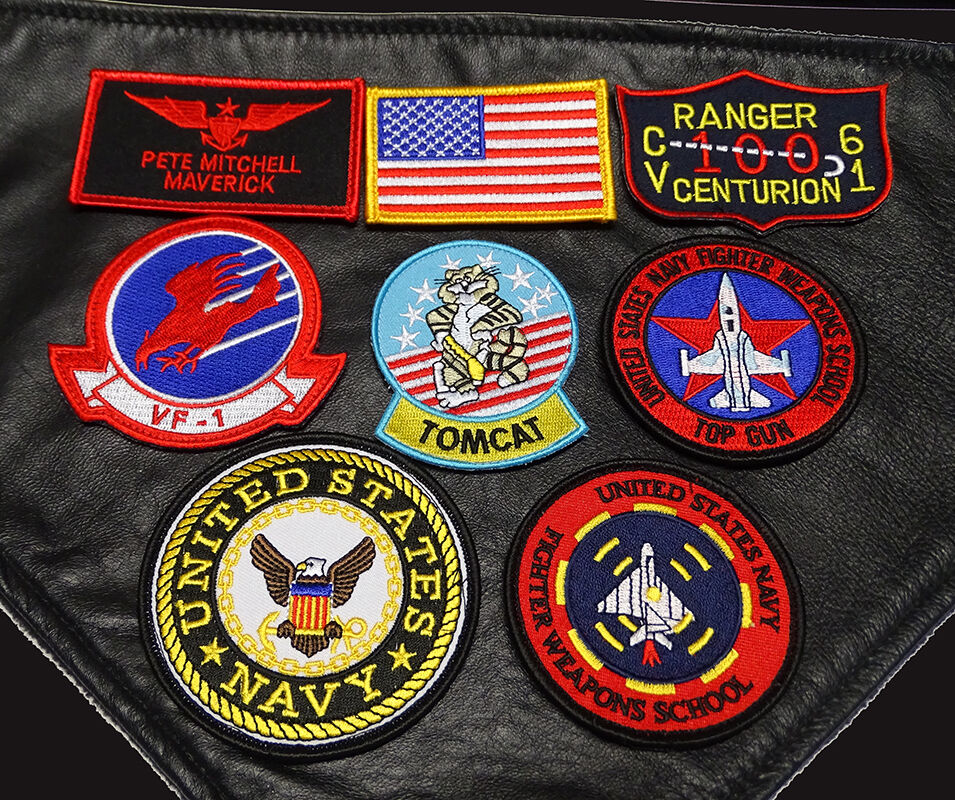-40%
USN F-14 TOMCAT TOP GUN VF-33 TARSIERS FIGHTER SQN iron-on INSIGNIA (disbanded)
$ 7.91
- Description
- Size Guide
Description
USN F-14 TOMCAT TOP GUN VF-33 TARSIERS FIGHTER SQN iron-on INSIGNIA (disbanded) PATCHThis is a very special USN F-14 TOMCAT TOP GUN VF-33 TARSIERS FIGHTER SQN iron-on INSIGNIA (disbanded) PATCH. You will receive the item as shown in the first photo. Please note that there are color variations due to settings on different PCs/Monitors. The color shown on your screen may not be the true color..
Fighter Squadron 33 (VF-33) was an aviation unit of the United States Navy. The first VF-33 was originally commissioned in 6 August 1942 and disestablished on 19 November 1945. A second VF-33 was then reactivated on 11 October 1948. With the reduction of forces after the end of the Cold War, this squadron was disestablished on 1 October 1993.
Tomcat transition[edit] In 1981 VF-33 transitioned to the F-14A Tomcat along with VF-102 and joined Carrier Air Wing One assigned to USS America. Until 1992 VF-33 made twelve deployments with CVW-1 aboard the America to the Atlantic Ocean, the Mediterranean and the Indian Ocean. Their first deployment was a grueling North Atlantic NATO deployment (Northern Wedding) between August and October 1982. VF-33 has used stars as part of their tail markings since the Crusader days and settled on a large star for their latter F-4 tenure and as the main symbol on the Tomcat. In 1987, they abandoned "Minky" and changed their name from Tarsiers to Starfighters, which was their radio callsign. The new patch featured a large star with a head-on view of a Tomcat. On 20 August 1985 VF-33 was the first squadron to complete 50 missile firings without a single failure.
Gulf of Sidra operations
In March 1986 VF-33 would bring their F-14s into a combat environment for the first time on board USS America with Carrier Air Wing 1 as they took part in Operation Attain Document in the Mediterranean Sea alongside the Saratoga and USS Coral Sea (CV-43). VF-33 engaged two Libyan MiG-25s with intent on shooting down the F-14s, but the Tomcats outmaneuvered the Libyans and ended behind the Libyan fighters, but the pilots did not have permission to open fire. Along with VF-102 they provided air cover during the operation as the carrier group moved into the Gulf of Sidra, which was claimed by Libya to be the Line of Death. Libya claimed its territorial waters extended across the entire Gulf of Sidra as opposed to the internationally recognised limit of 12 miles, and because of this claim, any airplane or ship within these waters was alleged to be in Libyan territory and liable to attack. US carriers occasionally challenged this assertion resulting in the first VF-41 Tomcat engagements with Libyan fighters in August 1981. On 15 April 1986, after a terrorist attack on disco hall La Belle in Berlin, killing two American servicemen and a Turkish woman, President Ronald Reagan ordered airstrikes, called Operation El Dorado Canyon, against targets in Libya. F-111 bombers based at RAF Lakenheath and RAF Upper Heyford in the United Kingdom attacked targets in Tripoli while U.S. Navy A-6 Intruders from America and Coral Sea attacked targets in Benghazi. Navy and United States Marine Corps F/A-18 Hornets and Navy A-7’s attacked surface-to-air missile sites with AGM-88 HARM missiles. F-14 squadrons deployed in the Mediterranean, including VF-33, flew cover for the strike force. In 1986, VF-33 flew 895 continuous sorties without an abort. In 1987 VF-33 made a short cruise on board the Navy’s newest carrier, the USS Theodore Roosevelt. After workups in 1988, VF-33 deployed on board America to the North Atlantic in February 1989, and again for a six-month Med-IO cruise from May through November. In February 1990 VF-33 made a two and a half month transit from San Diego to Philadelphia Naval Shipyard aboard USS Constellation (CV-64) providing fighter protection as the carrier made the journey around the southern tip of South America. VF-33 took part in several joint "Gringo-Gaucho" Exercises with South American nations during the transit.
Desert Storm operations
When Iraq invaded Kuwait in August 1990, four aircraft carriers were deployed to the region to provide carrier based air support for Operation Desert Shield. As the deadline for Iraqi withdrawal from Kuwait approached in January 1991, Theodore Roosevelt and America deployed to the region via the Suez Canal. VF-33 deployed with USS America arriving just as Operation Desert Storm commenced. America flew sorties alongside John F. Kennedy and Saratoga in the Red Sea before moving to the Persian Gulf to join USS Midway, USS Ranger (CV-61) and Theodore Roosevelt. VF-33 and VF-102 were the only Tomcat squadrons to fly missions from both the Red Sea and Persian Gulf during Operation Desert Storm.
Disestablishment
In 1993 a VF-33 airframe became the first F-14 to log 5,000 flight hours. When the Navy decided to assign only a single TARPS Tomcat squadron per carrier air wing after the end of the Cold War, VF-33 was not TARPS capable and despite the squadron's success in Desert Storm, it was disestablished on 1 October 1993. However, the tradition of VF-33 lives on through a very active alumni group that hosts a website and periodic reunions.[6].
Other items in other pictures are for your reference only, available in my eBay Store. They will make a great addition to your SSI Shoulder Sleeve Insignia collection. You find only US Made items here, with the same
LIFETIME
warranty.
**
eBay REQUIRES ORDER BE SENT WITH
TRACKING
, PLEASE SELECT
USPS 1ST CLASS SERVICE w/TRACKING
**
Flight crews of VF-33 with F-4J on USS Independence (CV-62) 1973
**
eBay REQUIRES ORDER BE SENT WITH
TRACKING
, PLEASE SELECT
USPS 1ST CLASS SERVICE w/TRACKING
**
We'll cover your purchase price plus shipping.
FREE 30-day No-Question return
ALL US-MADE PATCHES HAVE LIFETIME WARRANTY
We do not compete price with cheap import copies.
Watch out for cheap import copies with cut-throat price;
We beat cheap copies with Original design, US-Made Quality and customer services.
Once a customer, a LIFETIME of services










